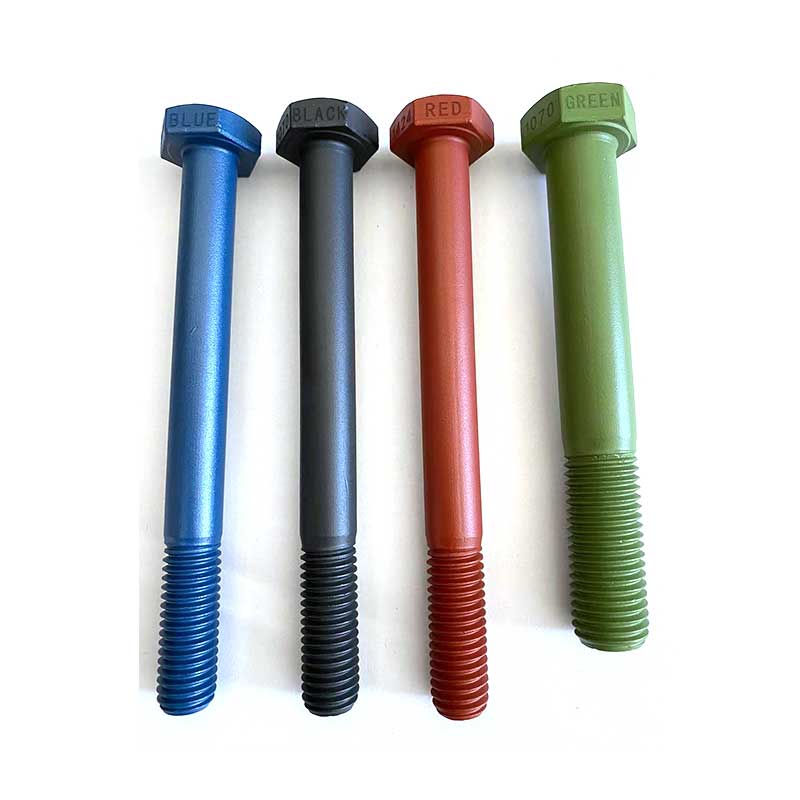Breaking Ground with Composite Bolts: A Dive into Their Uses and Advantages
2023-12-13
Introduction:
In the realm of fasteners, a new player has emerged – composite bolts. Combining the strength of traditional materials with the innovation of composites, these bolts are gaining traction in various industries. Let's unravel the story of composite bolts, exploring what they are, their unique features, and the diverse applications that showcase their versatility.
Understanding Composite Bolts:
Composite bolts are a groundbreaking development in the world of fasteners, blending traditional materials like carbon fibers or fiberglass with resins to create a lightweight, yet robust, alternative to conventional metal bolts. This fusion results in a bolt that offers excellent strength-to-weight ratio, corrosion resistance, and adaptability to specific application requirements.
Applications of Composite Bolts:
1. Aerospace Industry:
In the aerospace sector, where weight is a critical factor, composite bolts find a natural fit. Their lightweight nature contributes to overall fuel efficiency and helps meet stringent weight restrictions. Composite bolts are employed in the assembly of aircraft components, reducing the overall load without compromising structural integrity.
2. Marine and Offshore Structures:
The maritime industry, including shipbuilding and offshore structures, benefits from the corrosion-resistant properties of composite bolts. These bolts are resistant to saltwater corrosion, making them ideal for applications in marine environments where traditional metal bolts might succumb to rust.
3. Renewable Energy Infrastructure:
Composite bolts play a role in the construction and maintenance of wind turbines and other renewable energy infrastructure. Their resistance to corrosion and ability to withstand harsh weather conditions make them suitable for these applications, contributing to the longevity and reliability of renewable energy projects.
4. Sports Equipment:
The sports and recreation industry utilizes composite bolts in the manufacturing of equipment such as bicycles, snowboards, and kayaks. The lightweight yet sturdy nature of these bolts enhances the overall performance and durability of sports gear.
5. Automotive Sector:
In the automotive industry, composite bolts are employed in various components, including interior panels, engine components, and structural elements. Their lightweight design contributes to fuel efficiency and helps reduce the overall weight of vehicles.
6. Infrastructure and Construction:
Composite bolts find application in infrastructure projects and construction, especially in situations where corrosion resistance and weight considerations are paramount. Bridges, walkways, and other structures benefit from the durability and low maintenance requirements of composite bolts.
Advantages of Composite Bolts:
1. Lightweight Design:
Composite bolts are significantly lighter than their metal counterparts, making them ideal for applications where weight reduction is critical, such as in aerospace and automotive industries.
2. Corrosion Resistance:
The inherent resistance of composite materials to corrosion makes these bolts an excellent choice for applications in marine environments or structures exposed to harsh weather conditions.
3. Tailored Strength:
Composite bolts allow for the tailoring of strength properties based on specific application requirements. This versatility enables engineers to design fastening solutions that match the needs of a particular project.
4. Reduced Environmental Impact:
The production of composite bolts often involves lower energy consumption and emissions compared to traditional metal manufacturing processes, contributing to a reduced environmental footprint.
Conclusion:
As technology continues to advance, composite bolts are making a significant impact on diverse industries, offering a compelling combination of strength, corrosion resistance, and lightweight design. From the skies to the seas and across various construction projects, the versatility of composite bolts positions them as a key player in the fastener landscape. As innovation in materials science progresses, we can anticipate further developments and expanded applications for these remarkable bolts.



